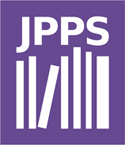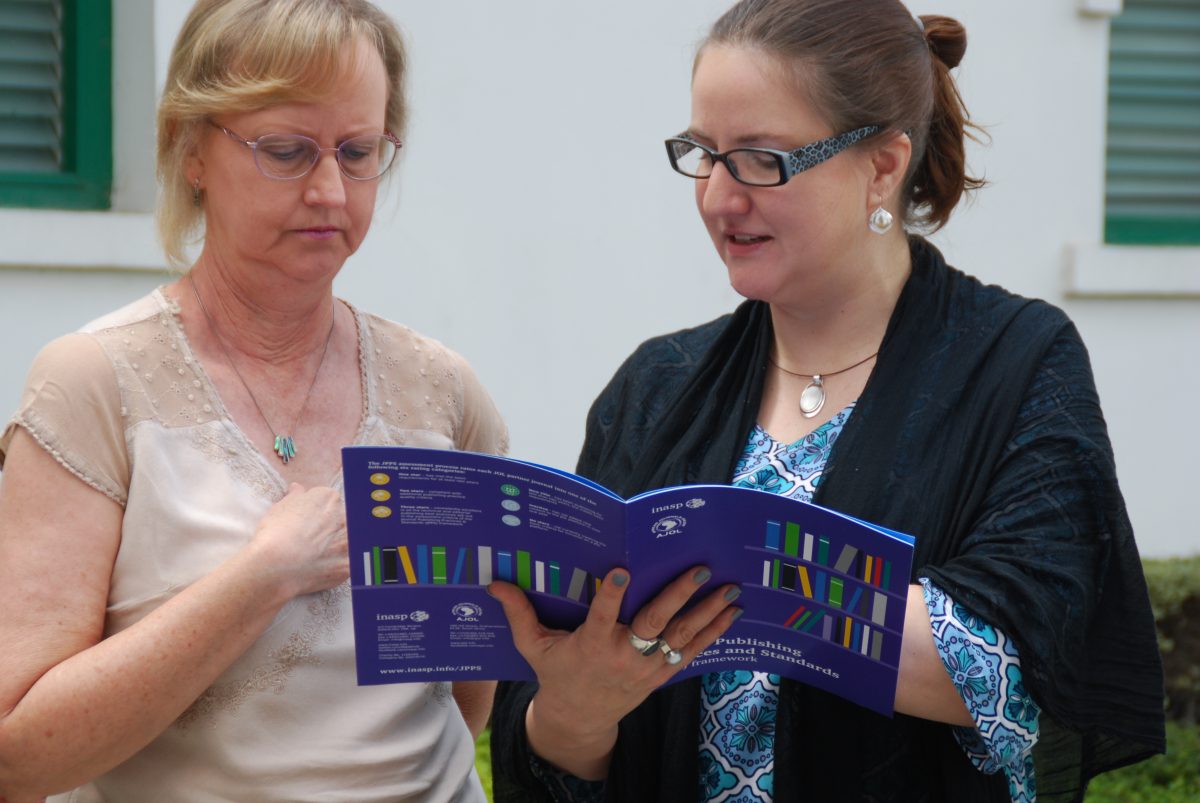20 September, 2017
Oxford, UK and Grahamstown, South Africa – INASP (www.inasp.info) and AJOL (www.ajol.info) have launched a comprehensive framework for assessing the quality of the publishing processes of journals in the Global South.
The Journal Publishing Practices and Standards (JPPS) framework (www.journalquality.info) provides detailed and internationally accepted assessment criteria for the quality of publishing practices and policies of Southern journals.
JPPS will inform and reassure authors and readers about reputable journals. More uniquely, it will also provide guidance to journal editors on how they should improve their publishing processes. Editors can resubmit their journals for reassessment six months to a year after the initial assessment if they can demonstrate improvement. INASP and AJOL also offer training and support to help journals improve their publishing processes.
Journals in the developing world face many challenges in being respected in the international research and publishing landscape. These concerns can also limit the perceived credibility of the research published within those journals.
Sioux Cumming, Programme Manager for INASP’s Journals Online project, explained:
“For the many problems facing countries in the developing world to be properly addressed, it is vital that Southern researchers have the opportunity to publish their research and for it to be discoverable by other local – as well as global – researchers. Ensuring that high-quality Southern journals are trusted as part of local and global scholarship is essential for redressing scholarly imbalances and helping the Sustainable Development Goals to be realized.”
JPPS addresses the concerns that are often raised about the perceived quality of publication practices, policies and processes implemented by Southern journals. Journals assessed against the JPPS criteria are given one of six levels: inactive title; new title; no stars; one star; two stars; and three stars. The 108 criteria measure factors such as the amount of information included on a journals’ website; the transparency and robustness of the peer-review process; and the journal’s archiving policy.
The assigned JPPS levels serve a dual purpose. For readers and authors, they provide assurance that an assessed journal does meet an internationally recognized set of defined criteria at a particular level. For journal editors, the detailed feedback from the JPPS assessment helps them identify specifics ways to improve the quality of their journal with a view to achieving a higher level at the next assessment.
Susan Murray, Executive Director of AJOL, said:
“We are very proud to be launching the JPPS framework, which builds on many years of work by AJOL and INASP in supporting the dissemination of Southern journals and understanding the various local contexts and challenges faced by these journals. This robust assessment framework is designed to demonstrate internationally accepted good practices in journal publishing and showcase partner journals on our platform that are already implementing these practices. It will also support our ongoing work of helping Southern journals to improve their processes.”
The process to inform editors in Africa, Asia and Latin America of their journals’ JPPS levels has already begun, with an overwhelmingly positive response.
Dr Chandre Gould, Senior Research Fellow, Governance Crime and Justice at the South African Institute for Security Studies, wrote to AJOL saying:
“The JPPS framework seems like a good system and offers us an important opportunity to improve the status of our journal. Thank you for the clear criteria.”
Dr Anuja Abyadeera, Editor of the Sri Lankan Journal of Anaesthesiology, commented:
“I am thrilled with the two-star status as it is, but I have stirred the editorial board that we have to achieve three-star status. I am determined to work towards it. Thank you so much for the constant support you have given me to work on the journal.”
Another Sri Lankan journal is also seeing the JPPS levels as a guide for improvements, as Dr C Arambepola and Dr Shamini Prathapan, the new co-editors of the Journal of the College of Community Physicians of Sri Lanka, highlighted:
“We have brought out a new facelift to the whole journal, and wish to improve on it too. We are targeting the ‘one star’ of the standards by this year – as we wish to publish four issues per year. Hoping to go up to two stars by 2018 too and for it to be indexed very soon.”
To ensure a robust, independent process, journal assessments are being carried out on behalf of INASP and AJOL by a UK-based consultant with experience in international, and especially developing-country, publishing. The JPPS website www.journalquality.info and official JOL websites (see notes below) will be the only official sources of information about the JPPS levels that have been assigned to journals.
Notes to editors
- The JPPS framework has been established and is managed by African Journals Online (AJOL) and INASP.
- The JPPS website provides the criteria in English, French and Spanish. See journalquality.info.
- See our FAQ page for responses to a range of questions.
- The JOLs currently being assessed under the JPPS process are:
- For examples of some of the important research that is published in journals on JOL platforms, see INASP’s press release programme: www.inasp.info/researchnews.
- The JPPS logo and images of the badges, along with photos of the JPPS team, can be obtained here or from sharris@inasp.info.
About the Journals Online Project (www.inasp.info/journalsonline)
The Journals Online (JOL) project aims to provide increased visibility, accessibility and quality of peer-reviewed journals published in developing countries so that the research outputs that are produced in these countries can be found, shared and used more effectively.
About African Journals Online (www.ajol.info)
African Journals Online (AJOL) was the first JOL platform, established by INASP as a pilot in 1998 and formally launched in 2000. Since 2005, AJOL has been managed independently by a South African Non-Profit organisation of the same name, and the platform now hosts over 500 journals, with over 200 additional titles that have applied for inclusion and are being assessed.
AJOL provides a highly visible online library of African-published, peer-reviewed scholarly journals at www.ajol.info, allowing global access to the research output of the continent. AJOL also works with our journal partners to facilitate their capacity building in publishing best practices, and provides various technical services that many journals might not be able to afford or implement on their own.
About INASP (www.inasp.info)
Founded in 1992, INASP is an international development organization working with a global network of partners in Africa, Latin America and Asia. In line with the vision of research and knowledge at the heart of development, INASP works to support individuals and institutions to produce, share and use research and knowledge, which can transform lives.
INASP’s approaches are based on the core pillars of capacity development, convening, influencing and working in partnership. INASP promotes equity by actively addressing the needs of both men and women across all our work and addressing issues of power within the research and knowledge system. INASP has projects in 28 countries, supporting all aspects of research and knowledge systems, from facilitating the provision of information to researchers to helping parliamentarians and civil servants to use research and evidence in policy making.


